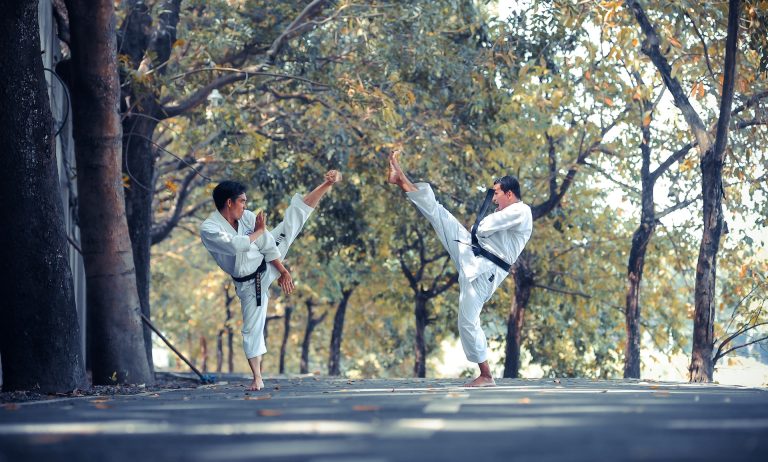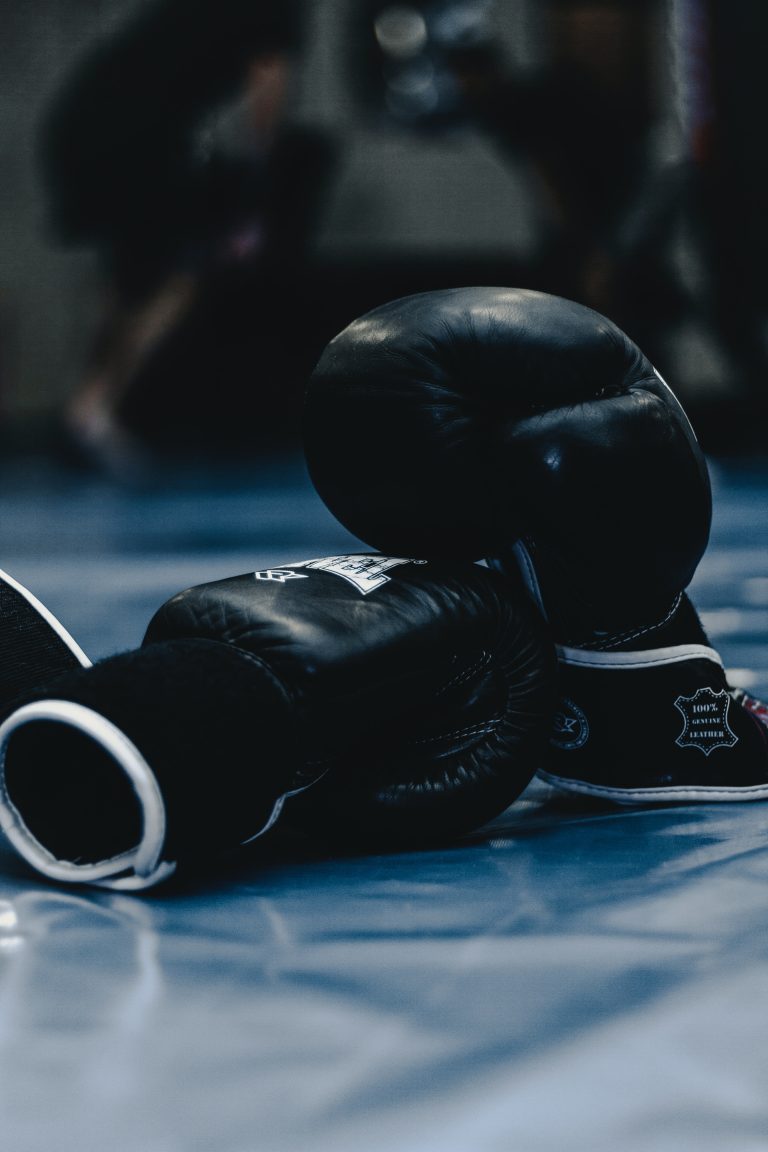How to Start a Karate Club: A Step-by-Step Guide
Starting a karate club can be an exciting journey for martial arts enthusiasts, but it also requires careful planning and organization. To help you get started, we’ve put together a step-by-step guide on how to start a karate club.
Step 1: Research the Market
Before starting a karate club, it’s important to do some research on the market. You need to figure out if there’s a demand for a karate club in your area. To do this, you can start by looking up existing martial arts studios and clubs in your area.
Identify what types of martial arts they offer and whether they have karate classes. You can also check if there are any competing karate clubs in the area, their class schedules, and fees.
Understanding the market will help you determine the best location for your club, class schedules, types of martial arts you can offer, and how much you should charge for membership fees.
Step 2: Identify Your Niche
Once you’ve studied your competition and determined the demand for a karate club in your area, it’s time to define your niche. Try to identify what makes your club unique and how it can stand out from other karate clubs in your area.
Your niche could be in the form of exclusive class offerings, personalized instructions, a focus on traditional martial arts or modern techniques, and more. Your club’s unique selling proposition (USP) should be something that sets it apart from other karate clubs.
Step 3: Find a Suitable Location
The perfect location for a karate club is one that is accessible, safe, and easily visible to potential members. Consider renting a studio or community center, or you can even start in a community park or school gym.
When scouting for locations, consider the space’s capacity, its condition, and the availability of utilities like water, electricity, and restrooms. Also, consider the rental cost and availability of parking spaces.
Step 4: Get Proper Licensing and Insurance
Before you can start offering classes, you must have the necessary licensing and insurance. The first step is to obtain a business license from your local government, and you should also register your club as a non-profit or for-profit entity.
Once you have acquired the business license, you can get insurance coverage for liability and property damage. Liability coverage will help protect your club from lawsuits, while property damage insurance will cover damages to your club’s equipment and facilities.
Step 5: Hire Qualified Instructors
The success of your karate club will depend on the qualifications and experience of your instructors. Look for instructors who have a reputable background in martial arts, and who are certified by recognized bodies.
Consider the style of karate you want to teach and ensure that your instructors are experts in it. You may also want to consider hiring additional staff to help with administrative and marketing duties.
Step 6: Develop Class Schedules and Fees
Once you have qualified instructors, it’s time to develop class schedules and fees. Consider what days and times would be best for classes, keeping in mind the availability of your instructors and potential members.
Set realistic membership fees based on your research on the market and the expenses required to run your club. You can also consider offering introductory classes or discounts for new members to attract more people.
Step 7: Promote Your Karate Club
The final step is promoting your karate club to the public. Start with setting up social media pages, creating posters, flyers, and brochures, and listing your club on online directories.
Don’t hesitate to reach out to local newspapers, radio, and schools to promote your club. You may also want to host a free introductory class to show potential members what you have to offer.
Starting a Karate Club: Answers to the Most Frequently Asked Questions
Starting a karate club can be an excellent way to share your passion for the sport and build a community. However, it can also be a daunting task, especially if you don’t know where to start. In this blog post, we will answer some of the most frequently asked questions about starting a karate club.
1. What are the requirements for starting a karate club?
The requirements for starting a karate club may vary depending on your location and the organization you want to align with (if any). It is best to check with your local government to know about the necessary permits and certifications. Some organizations may require that you have certain qualifications or ranks, such as a black belt or instructor’s certification.
2. Do I need a specific space to start a karate club?
Yes, having a specific space to practice is crucial for starting a karate club. This space should be large enough to accommodate your members, and it should be safe and conducive to training. If you don’t have access to a gym or dojo, you may consider renting a space or training in a public park.
3. How do I find members for my karate club?
Finding members for your karate club may take some time, but there are several ways to do it. You can start by advertising your club in local newspapers, on social media platforms like Facebook, Twitter, and Instagram, and putting up posters in your community. You can also create a website for your club, which will make it easier for people to find you online.
4. How much should I charge for membership fees?
Membership fees may vary depending on your location, your organization, and the costs associated with running your club. It is best to research the fees charged by other clubs in your area to get an idea of how much to charge. You should also consider the costs of renting training space, purchasing equipment, and other expenses.
5. Do I need to have any special equipment to start a karate club?
Yes, having the right equipment is essential for starting a karate club. Some of the basic equipment you will need include:
- Karate uniforms (gi)
- Protective gear (headgear, mouthguard, gloves, etc.)
- Kicking and punching pads
- Bags for striking practice
6. Can I start a karate club without any experience?
While having experience in karate is essential for starting a karate club, it is not a requirement. However, it is crucial that you have a good understanding of the practice, its principles, and its techniques. You may also partner with an experienced instructor to help you run your club.
7. How do I ensure the safety of the members in my karate club?
Ensuring the safety of your members should be a top priority. You can do this by implementing safety rules, providing proper training and protective gear, and regularly inspecting your training space for any hazards. You may also consider enrolling in first aid and CPR courses to be better prepared for any emergency situations.
8. Do I need to obtain insurance for my karate club?
Yes, it is crucial to obtain liability insurance for your karate club. Accidents can happen during training, and having insurance will protect you and your members from any legal or financial issues. You may consider joining a martial arts organization that offers liability insurance as part of its membership benefits.
In conclusion, starting a karate club is a fulfilling and challenging endeavor that requires careful planning and preparation. By considering these FAQs and doing further research, you can successfully start and run a thriving karate club in your community.
How to Start a Karate Club: A Step-by-Step Guide
Starting a karate club can be a fulfilling and rewarding way to share your passion for martial arts with others. Running a successful club requires dedication, organization, and planning. In this guide, we will walk you through the steps needed to start your own karate club.
Step 1: Determine Your Goals
Before starting your karate club, it’s important to establish your goals. Ask yourself what you hope to achieve by starting a karate club. Are you interested in teaching self-defense, promoting physical fitness and health, or simply sharing your love of martial arts with others? Clarifying your goals will help you develop a plan and attract like-minded individuals to your club.
Step 2: Find a Location
Next, you’ll need to find a space to hold your karate classes. Depending on your budget and goals, you may choose to rent a space or use a public park or community center. Be sure to choose a location that is easily accessible and has adequate space for your classes.
Step 3: Develop a Curriculum
Once you have a location, it’s time to develop a curriculum for your karate club. Consider the age and skill level of your potential members and develop a program that is challenging yet engaging. Incorporate a variety of techniques and training styles to keep classes interesting and engaging.
Step 4: Build a Team
Starting a successful karate club requires a team effort. You’ll need to recruit instructors, trainers, and volunteers to help run your classes and promote your club. Reach out to friends, family, and local martial arts enthusiasts to build your team.
Step 5: Obtain Insurance and Permits
Before launching your karate club, it’s important to obtain insurance and necessary permits. Liability insurance will protect you and your club in case of any accidents or injuries that may occur during class. Additionally, you may need to obtain permits or licenses from your local government or park authority.
Step 6: Promote Your Club
Once you have everything in place, it’s time to promote your karate club. Create a website or social media presence to promote your club and attract potential members. Consider running promotional offers or hosting an open house to get people interested in your karate club.
Step 7: Launch Your Club and Grow
With everything in place, it’s time to launch your karate club. Start holding classes and promoting your club to attract new members. Build a community and encourage your members to invite their friends and family to join.
Conclusion
Starting a karate club can be a rewarding way to share your love of martial arts with others. Follow these steps, stay organized, and be dedicated to your goals, and you’ll be on your way to running a successful and thriving karate club.
Inhaltsverzeichnis






